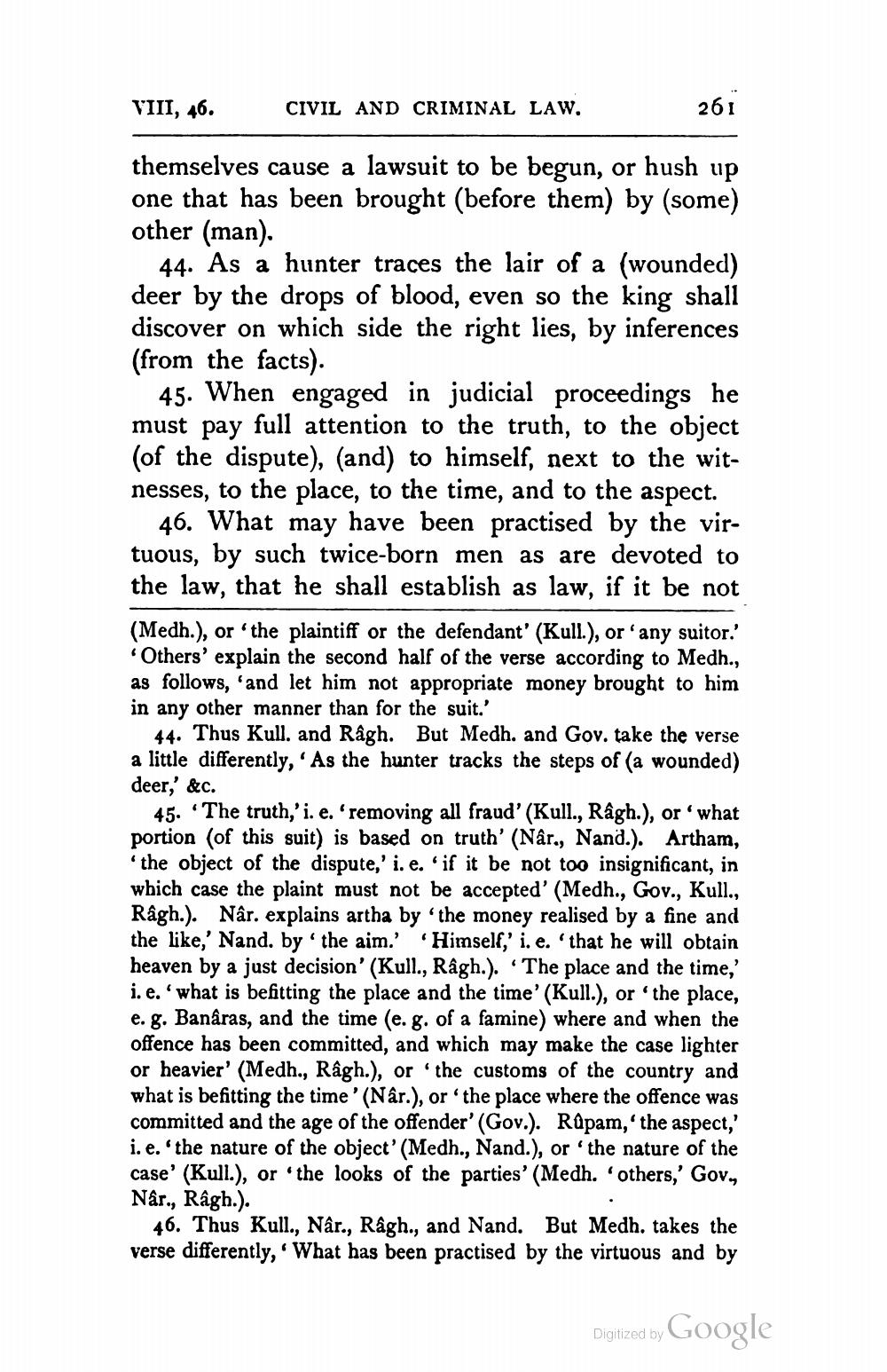________________
VIII, 46.
CIVIL AND CRIMINAL LAW.
1
261
themselves cause a lawsuit to be begun, or hush up one that has been brought (before them) by (some) other (man).
44. As a hunter traces the lair of a (wounded) deer by the drops of blood, even so the king shall discover on which side the right lies, by inferences (from the facts).
45. When engaged in judicial proceedings he must pay full attention to the truth, to the object (of the dispute), (and) to himself, next to the witnesses, to the place, to the time, and to the aspect.
46. What may have been practised by the virtuous, by such twice-born men as are devoted to the law, that he shall establish as law, if it be not (Medh.), or 'the plaintiff or the defendant' (Kull.), or any suitor.'
Others' explain the second half of the verse according to Medh., as follows, and let him not appropriate money brought to him in any other manner than for the suit.'
44. Thus Kull. and Râgh. But Medh. and Gov. take the verse a little differently, 'As the hunter tracks the steps of (a wounded) deer,' &c.
45. The truth,'i. e. 'removing all fraud' (Kull., Râgh.), or what portion (of this suit) is based on truth' (Nár., Nand.). Artham,
the object of the dispute,' i. e. 'if it be not too insignificant, in which case the plaint must not be accepted' (Medh., Gov., Kull., Râgh.). Nâr. explains artha by the money realised by a fine and the like,' Nand. by 'the aim.' 'Himself,' i.e. 'that he will obtain heaven by a just decision' (Kull., Râgh.). The place and the time,' i.e. what is befitting the place and the time' (Kull.), or the place, e. g. Banaras, and the time (e. g. of a famine) where and when the offence has been committed, and which may make the case lighter or heavier' (Medh., Râgh.), or the customs of the country and what is befitting the time' (Nar.), or the place where the offence was committed and the age of the offender' (Gov.). Rūpam,' the aspect,' i. e. 'the nature of the object' (Medh., Nand.), or 'the nature of the case' (Kull.), or 'the looks of the parties' (Medh. 'others,' Gov, Når., Râgh.).
46. Thus Kull., Nâr., Râgh., and Nand. But Medh. takes the verse differently, 'What has been practised by the virtuous and by
Digitized by Google




